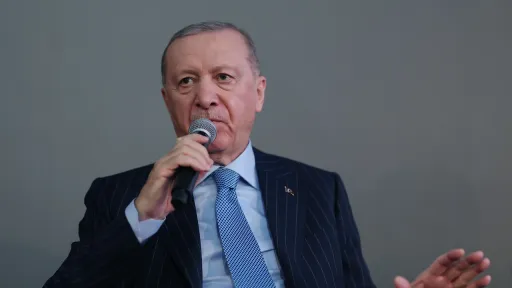By Sylvia Chebet
One medical bill away from poverty — this scary phrase rings true for more people in low and middle-income countries than one would imagine.
Idiba Loudy Diane, a native of Gabon, knows what it is like to deal with the double whammy of unemployment and a debilitating disease that quickly drained her savings.
Her troubles worsened in 2021 when the hotel she worked for in Libreville closed. By 2023, she was teetering on the brink with no income and the burden of expensive treatment for a childhood kidney disease that flared up at the most inopportune time.
"Everything got complicated. I was experiencing recurrent fever, vomiting and enormous tiredness," she recounts to TRT Afrika. "I was hospitalised for an entire month. My kidneys had stopped working, and I picked up other illnesses such as a lung infection. I was also on dialysis."
In Gabon, a dialysis session typically costs 200,000 CFA franc, the equivalent of US $325. For Diane, the mounting medical expenses were unsustainable.
"The hardest part was going for frequent treatment. Taxi fares are expensive, and I was getting dialysis thrice a week," says Diane.
Her family stepped in to ensure her treatment continued, but not all are as lucky to have someone to fall back on after breaking the bank in a medical emergency.
Widespread malaise Multiple studies by the World Health Organisation (WHO) and the World Bank acknowledge how "catastrophic health expenditure" is bearing down on populations across developing countries.
In Africa, health experts are concerned that the vast majority of the population risks losing everything after just one bout of major illness that requires medium to prolonged hospitalisation and follow-up.
As of 2020, it was estimated that 48% of people on the continent would face a financial catastrophe if they needed surgery.
Even when dealing with illnesses that do not require surgical interventions, many patients have had to sell their farms or property to buy healthcare.
Recent WHO-funded research revealed that an estimated 55% of tuberculosis patients and their households across 135 low and middle-income countries had to spend at least 20% of their annual household expenses on the medical treatment of one family member.
According to experts, when a household's out-of-pocket health spending exceeds a given percentage of its ability to pay, reducing the household's consumption of other basic needs, it is labelled catastrophic.
Apart from direct medical costs, the burden includes loss of employment and income, travel expenses to and from healthcare facilities, and food.
TB Alliance, a not-for-profit organisation dedicated to the discovery, development and delivery of tuberculosis drugs to those in need, says drug-resistant patients and their families have an even harder time coping with the disease.
In South Africa, many patients battling tuberculosis, particularly in low-income households, have to contend with the challenge of accessing not just any food but proper, nutritious diets to sustain their immunity.
"Patients under TB medication experience hunger pangs alongside abdominal cramps," Zani De Wit, community engagement officer at the University of Cape Town Lung Institute tells TRT Afrika.
"Besides exceptionally high and increasing unemployment rates, overcrowded living conditions, crime and violence, South Africa also faces a substance abuse crisis. Patients use substances as an escape from the challenges of everyday life."
Currently, most TB programmes on the continent are supported by governments and donors to ease the burden on patients.
But as Zani points out, the financial condition of families can be under such strain that "patients will purposefully default on their TB treatment just to ensure they are getting a grant for their livelihood".
Beyond the financial challenges, patients can find a TB diagnosis traumatic and struggle emotionally and psychologically to come to terms with their new disease.
Patients battling various diseases share this struggle, even as governments continue to work on plans to build a bulwark for them through universal health coverage.
























